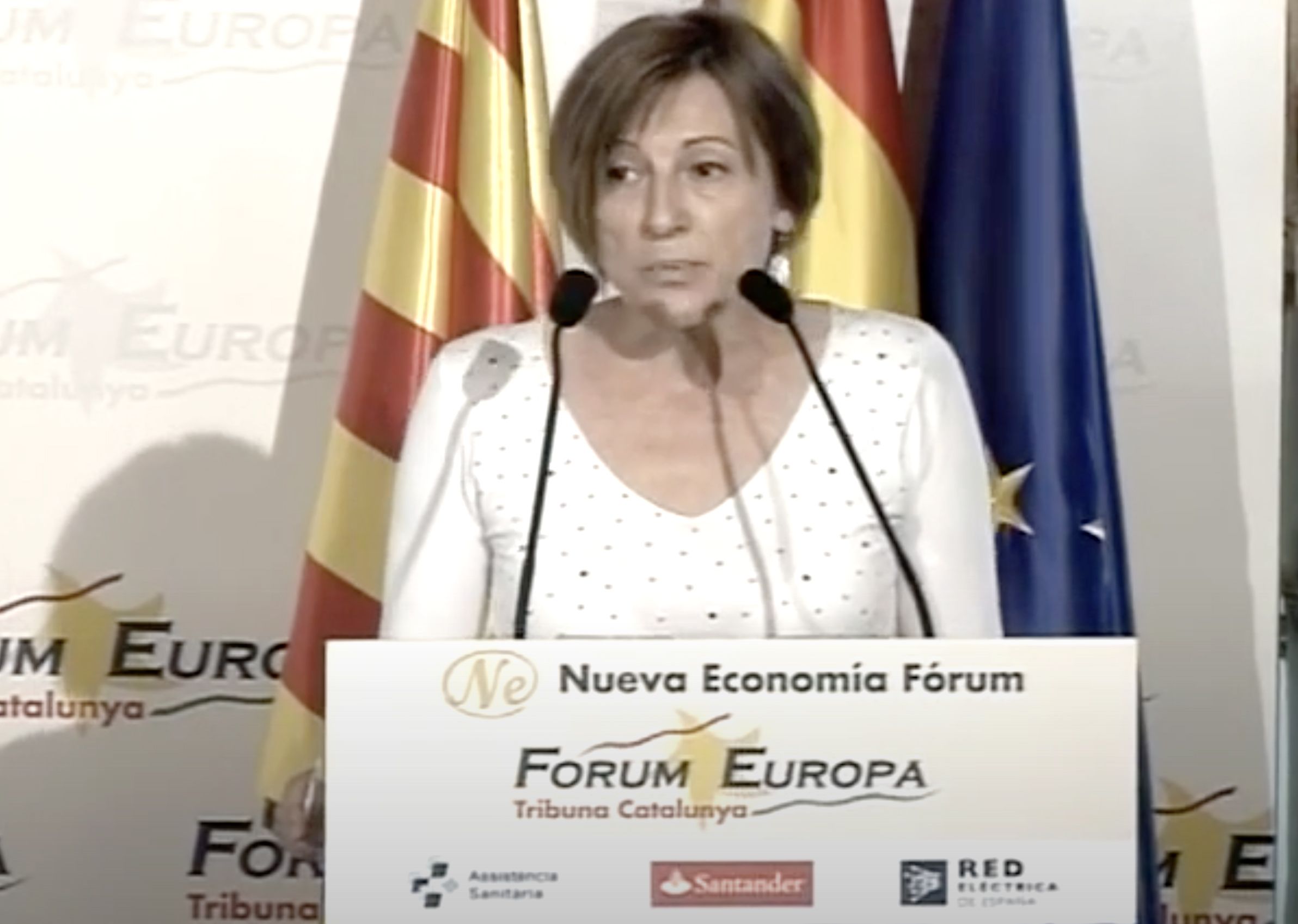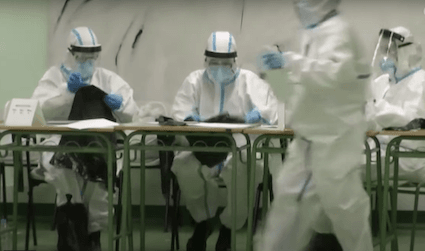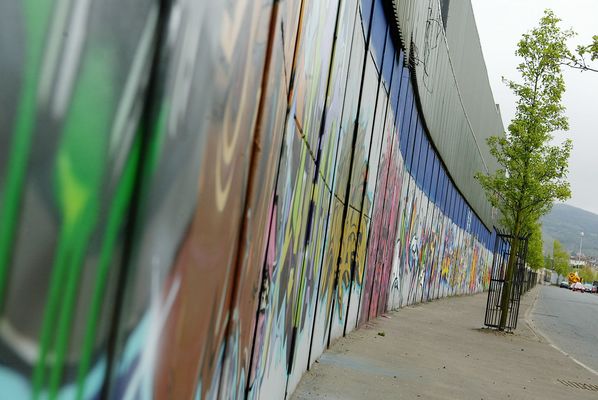Carme Forcadell, former Speaker of the Catalan Parliament, is serving an 11 year and six months sentence in Barcelona's Wed-Ras prison. Her 'crime'? Allowing a debate on Catalan independence in July 2017. There are almost 8 million people in the Catalonia autonomous region across a landmass of 32,000 sq km.
Carme Forcadell answered questions put to her by email by Belfast-based Catalan reporter, Irene Bogada-Montagut.
Carme Forcadell is best-known for organising imaginative forms of protest for Catalan independence. In 2014 she and others choreographed ‘The Catalan Way Towards Independence’. This involved almost two million Catalans linking hands across a stretch of 400 kilometres within Catalonia to dramatise their call for independence.
She describes this mass mobilisation and other hugely colourful visual spectacles as symbols of "the unity of Catalan people to achieve national sovereignty". Building on this activism, she entered politics in 2015, became the President/Speaker of the Catalan Parliament and was an enthusiastic supporter two years later of the historic Catalan declaration of independence, delivered in the Catalan Parliament.
The reaction by Madrid was widespread repression. Carme and eight other members of the Catalan government were sentenced to between nine and thirteen years in jail on charges of sedition.
What has been most difficult time for you over the three years you have already spent in jail?
I take it as best I can. It is hard. I feel I am a survivor. I take each day as it comes. The hardest part has been, and still is, living away from the people I love, family and friendships. But I’ve learned that people adapt to the most adverse circumstances. Also I find that women are discriminated against within the prison. We do not have access to the same opportunities and facilities. I’m trying to change that. I’m writing a book: ‘Let’s Write the Future in Purple'.
What is the role of women in Catalan politics?
I always demand empathy. Empathy helps us to see things from all perspectives. And, of course, it is fundamental to have equal presence between men and women in decision-making. We have come a long way in this direction but although there are many women in politics, they need to occupy more significant decision-making roles. The feminist perspective helps advance politics and other issues in life. Currently, Esquerra Republicana [Left Republicans, her party affiliation] has two men and two women in their negotiating team.
What do you think of the role of the European Union in relation to Catalonia?
We are seeing a closed and unsympathetic EU generally. It has been indifferent to the Catalan case so far. But we have also seen this in relation to the thousands of refugees and immigrants coming to Europe. However, I would remind you that more and more MEPs are commenting on repression by the Spanish state against the pro-independence movement; they are criticising our imprisonment. We are convinced, when we get to the European Court, that it will prove us right. But they are too slow. Justice seems to be too slow everywhere.
How do you view Scotland and Ireland in terms of the campaign for independence for Catalonia?
There is a special relationship with Scotland, as in both Scotland and Catalonia there is a large majority of citizens who want to decide their future and live in an independent state. Scotland has the advantage that the United Kingdom allowed a referendum on self-determination, while Spain repeatedly denies that right.
There is also a special relationship with Ireland and we have received a lot of Irish support. For example, on 29 April the Irish MEP Clare Daly, as a spokesperson for a group of MEPs and other public representatives, more than 250 in fact, signed a letter addressed to the Spanish government demanding an amnesty for political prisoners and all those prosecuted by the Spanish state. I have also received support from Sinn Féin, including from Gerry Adams.
Moltes gràcies Eduard per pensar en mi i en totes les persones que pateixen repressió. https://t.co/RfpqG7kG6P
— Carme Forcadell (@ForcadellCarme) April 2, 2021
Are there any signs of hope or reform in Spain itself? Might the prisoners be freed by the present Socialist government?
Change is very necessary. It is needed in relation to the law, the judicial system and the Constitution. In fact, the Spanish Constitution was not ratified in Catalonia. The courts are highly politicised. I have heard rumours that the Spanish government wishes to reform the Penal Code and reduce the crime of sedition, a crime that no other country in the EU has. We also hear they will pardon us but there is no action so far. We are calling for an amnesty as a first step in resolving the conflict between Catalonia and Spain.
At present half the people of Catalonia are in favour of independence, a half are not. What kind of majority do you think would be necessary to ensure political stability in an independent Catalonia?
For the first time, pro-independence activists have surpassed 50 per cent in an election. This is a very important fact and it shows that, election after election, the independence movement is growing. The referendum has even more social support. Practically 80% of Catalan citizens believe that it is necessary to vote in a referendum on whether or not Catalonia should be an independent state. With such a majority plea, sustained over time, the Spanish government must respond. The opinions of millions of citizens cannot be ignored indefinitely, nor can the Spanish state go on responding with imprisonment and repression. We stand for peaceful and democratic ways. I think that Catalan society is very mature and would accept the result of the referendum whatever it was.
Further reading: Guardian report on the release of Carme Forcadell from prison on bail in 2017.
Sentencing of Carme Forcadell in October 2019 on Catalan news site.
Messages of support to Carme Forcadell can be sent to:
Carme Forcadell Lluís
Carme Forcadell i Lluís
Centre Penitenciari Wad Ras
Doctor Trueta, 76
08005 Barcelona







